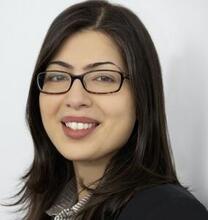Remarkable advances in qubit hardware have enabled landmark experiments demonstrating small-scale quantum simulations, quantum computational tasks, and error-correction protocols. Nonetheless, achieving scalable, fault-tolerant quantum error correction (FTQEC) necessary for building useful quantum technology remains a challenging task. Firstly, it is still very hard to realize scalable hardware which operates below the maximum noise-strength that the error correction codes can tolerate, called the threshold. Moreover, with the noisy hardware available today or in the near-future, the resource overheads for FTQEC is dauntingly large. In fact, the overhead can completely overwhelm the advantage of quantum algorithms over classical ones for many practical problems. While developing low-noise quantum hardware is important to ease the requirements for FTQEC, in this talk I will focus on a complementary strategy which is based on the observation that some type of errors are less contagious and easy to correct than others. I will show how the detailed noise properties of the underlying quantum hardware can be leveraged to design high-threshold and low-overhead protocols for FTQEC. I will also discuss the opportunities for practical applications in different hardware platforms, with specific focus on superconducting circuits.
Host: Steven Girvin (steven.girvin@yale.edu)
The Colloquium series of the Yale Physics Department is called the Physics Club. The name dates to the late 1890s, the era of J Willard Gibbs, who influenced the intellectual life at Yale through a number of “graduate clubs”. He was one of the founders of the Mathematics Club which originated in 1877; he served as its executive officer for ten years. The Physics Club first met on the evening of Oct. 31, 1899, with 13 in attendance. Ever since, Physics Club has met regularly through each academic year, though in a break with tradition, we do no meet on the evening of Halloween. (Reference: Suha Gürsey, The History of Physics at Yale 1701-1970 (c) 2000.)
Physics Club is a weekly colloquium of general interest to the Department of Physics, Applied Physics, Astronomy, and Mathematics. The series is aimed at graduate students, postdoctoral researchers, research staff and faculty. For more information, or to request a Zoom link to attend, please send an E-mail with your name and institutional affiliation to Stacey Bonet, Chair’s Assistant.
Physics Club: Shruti Puri, Yale University, “Quantum Error Correction for Next-Generation Qubit Technologies”
Event time:
Monday, April 4, 2022 - 4:00pm to 5:00pm
Location:
Sloane Physics Laboratory (SPL), Room 59
217 Prospect Street
New Haven, CT
06511
Event description:
Contact:
(see "Description" above)
